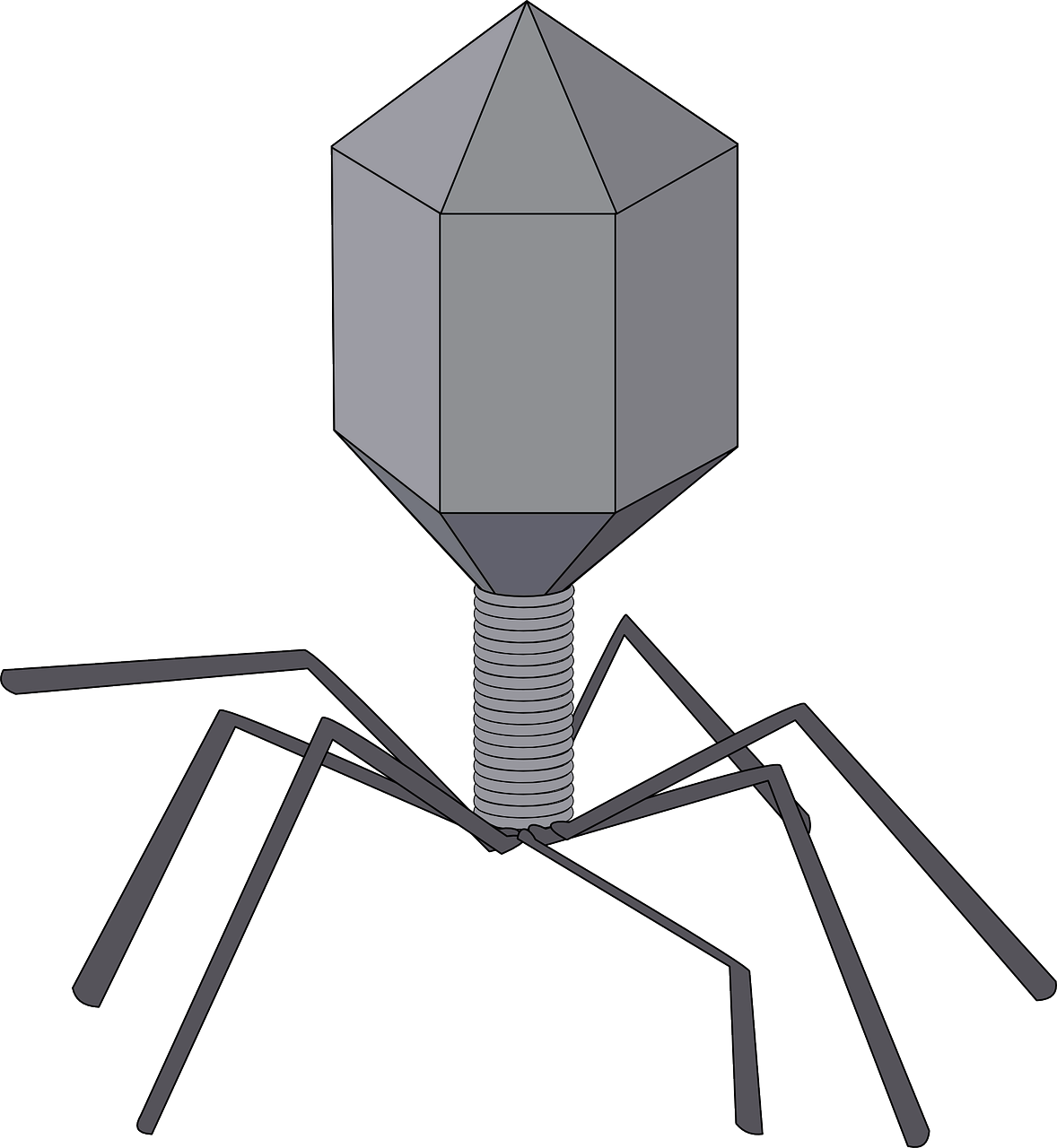In July 2019, Kirsten Wessels (4th year food science student) and Michaela van den Honert (postdoctoral fellow at CFS) had the opportunity to visit Micreos in Wageningen, the Netherlands. They learnt all about bacteriophages and how they can be used to make food safer for the public, in a natural way.
Bacteriophages are viruses, about 100 times smaller than bacteria, that specifically destroy certain bacterial pathogens, such as Listeria, Salmonella and E. coli.

A three-dimensional image of a bacteriophage
This allows the normal, and often beneficial, microflora to remain intact while the harmful bacteria which can cause foodborne disease, are destroyed. This technology can be regarded as 'natural' and 'clean label', as the bacteriophages used are isolated from those which naturally occur in the environment and are not genetically modified. They are typically prepared into a water-based solution consisting of purified phages and salts.
This 'phage biocontrol' technology is applied to food or a food processing environment as a liquid solution via a spray, mist or dip. There are no adverse effects to the taste, colour, texture or aroma of the food.
Did you know?
- Bacteriophages can also be used in human medicine as alternatives to antibiotics.
- Bacteriophages can also be used to replace antibiotics in animal feed, as they have shown to control the gut flora in animals, reducing the need to use antibiotics to treat diseases.
Learn more about bacteriophages at:

